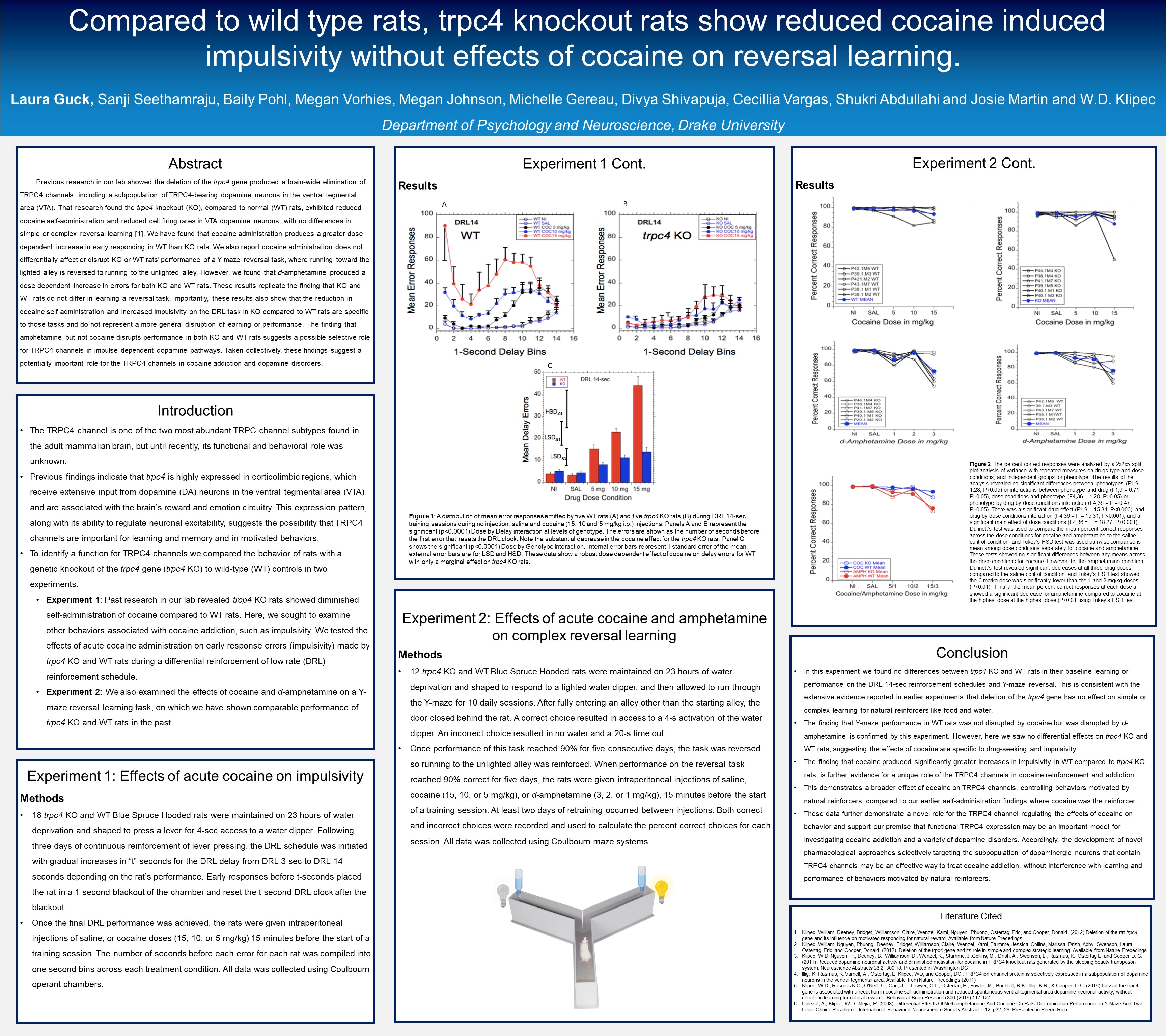
POSTER ABSTRACTS
Materials should NOT be shared with those that are not registered for the conference. Poster abstracts are not proofed for spelling and/or grammar errors.
The poster and/or other information contained on this website may NOT be downloaded and/or used without prior written permission from all authors on the project. If you would like to be connected with the author(s), please email [email protected].
Compared to wild type rats, trpc4 knockout rats show reduced cocaine induced impulsivity without effects of cocaine on reversal learning
Laura Guck, Sanji Seethamraju, Baily Pohl, Megan Vorhies, Megan Johnson, Michelle Gereau, Divya Shivapuja, Cecillia Vargas, Shukri Abdullahi, Josie Martin, and W.D. Klipec
Department of Psychology and Neuroscience, Drake University
Abstract
Previous research in our lab showed the deletion of the trpc4 gene produced a brain-wide elimination of TRPC4 channels, including a subpopulation of TRPC4-bearing dopamine neurons in the ventral tegmental area (VTA). That research found the trpc4 knockout (KO), compared to normal (WT) rats, exhibited reduced cocaine self-administration and reduced cell-firing rates in VTA dopamine neurons, with no differences in simple or complex reversal learning. We have found that cocaine administration produces a greater dose-dependent increase in early responding in WT than KO rats. We also report cocaine administration does not differentially affect or disrupt KO or WT rats’ performance of a Y-maze reversal task, where running toward the lighted alley is reversed to running to the unlighted alley after either one or three reversals. However we found that d-amphetamine produced a dose dependent increase in errors for both KO and WT rats. These results replicate the finding that KO and WT rats do not differ in learning a reversal task. Importantly, these results also show that the reduction in cocaine self-administration and increased impulsivity on the DRL task in KO compared to WT rats are specific to those tasks and do not represent a more general disruption of learning or performance. The finding that amphetamine but not cocaine disrupts performance in both KO and WT rats suggests a possible selective role for TRPC4 channels in impulse-dependent dopamine pathways. Taken collectively, these findings suggest a potentially important role for the TRPC4 channels in cocaine addiction and dopamine disorders.
Key Words: TRPC4 Channels, impulsivity, reversal learning, cocaine.
Access PDF version to expand view.

